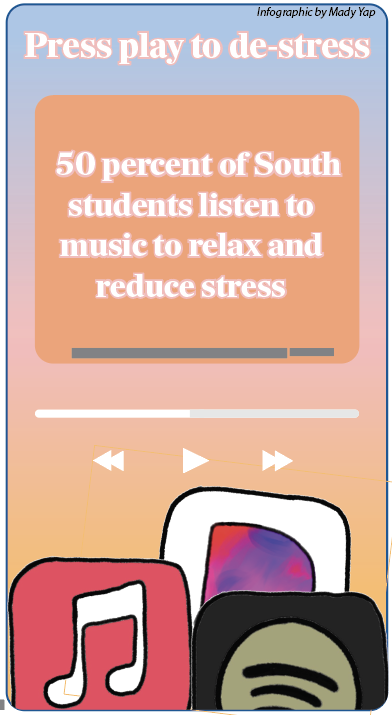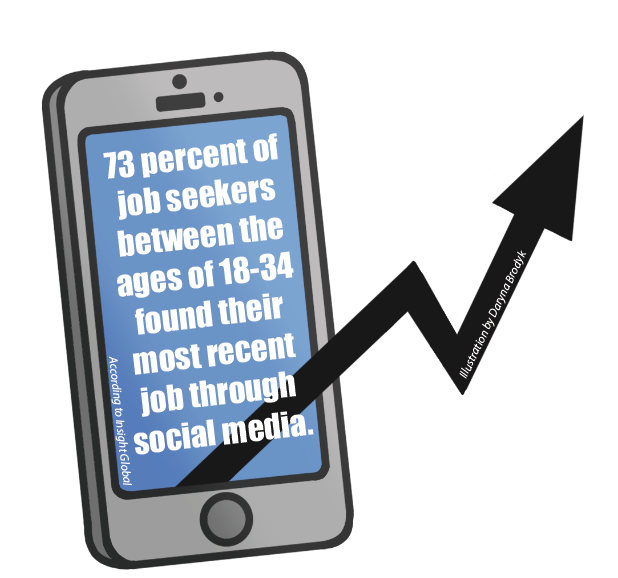There are few students inside the walls of South who haven’t overheard a conversation along the lines of, “Dude, I know! He’s such a faggot!” or one that went along the lines of, “Her mile time was real fast; I told you she was a dyke.” Well, from the perspective of being a gay student, I hope that if anyone is at all shocked by seeing these slurs in print that they will gain new perspective about the high school experience.
As I saunter past these conversations, there is a very real tension: I’m emotionally stopped in my tracks in situations like these, but I also want nothing more than to run away from the prejudice. I often pondered the question of whether their language would change if they knew about me. Invisible hadn’t really been a word I had used to describe myself before, but that was exactly the feeling I had in these sort of situations.
I tell myself that it isn’t entirely their fault for using such pejorative words. It’s not like they knew I or another closeted person nearby was lesbian, gay or bisexual (LGB). The reality is, people don’t censor themselves unless a gay, lesbian or bisexual person is “out.”
The onus is not on members of the LGB community to make their orientation public in order to allow others to filter their thoughts accordingly. Rather, the responsibility falls upon everybody involved in students’ high school experiences—students, teachers, parents and other adults—to come to terms with the fact that we don’t know everything about one another. Pejorative language that is so widely used prevents the South and wider Glenview/Northbrook communities from becoming what they can be: accepting and appreciative of differences that can increase understanding instead of causing rifts.
However, there is a much more institutionalized dimension to the misuse of language than just students’ experiences in the hallways. I have been in the gym locker room when students yell homophobic slurs, having no reservations about who might hear it. I have never seen staff, who would have to be plugging their ears not to hear such remarks, address the students’ misbehavior in public. While they may pull the student aside, this misses the point of conveying a message to a larger group that this sort of behavior won’t be tolerated.
While this is just my experience, I imagine it is true for other students. This is not a criticism of any one person or department in particular; the same thing is true of other teachers I have had. There can and should be a better job done of making sure students understand the gravity of the language they use.
Part of this comes from beginning to acknowledge the ‘elephant in the room,’ so to speak, of sexuality in the classroom. Just as it is considered wrong to ignore religious prejudice, gender discrimination or racism, the same should be true of stereotypes and stigma around sexuality. If we are as far along ideologically as we say we are in terms of acceptance, then it is important, for teachers especially, to transition away from hetero-normative speech, defined in this case a way of speaking that assumes heterosexuality among students.
Throughout our high school experience, we learn about a wide range of social issues, past and present, in social studies and history classes—social issues we may be able to relate to. We learn about books, the important people in them and the way their lives are shaped by the way their personalities interact with those around them—just like our narratives are shaped by those around us. We learn about the body, relationships and mental health—all topics which we consider and implement on a daily basis.
In essence, we are shaped by the experiences we have and how we are taught, putting the school in a position of power to either support students by acknowledging and discussing sensitive topics in the classroom or to stifle them by continuing to ignore them.
South is by no means the only school at fault for any of the behavior I have described thus far. On the other hand, we can’t think about the fabric of South as being as tightly woven as some consider it to be already, until the culture we have established stops forcing the closet door shut, causing students to retreat further inside it.
I shouldn’t have to out myself in order to convey the following message: every student deserves a right to an education and school environment that doesn’t invalidate an entire aspect of their person. I am so fortunate to feel accepted after I shared part of myself. There is so much more of that to be had for students who live their lives in a seemingly perpetual and dark tunnel. It will take the conscious help of everyone, no matter who you are or who you prefer, to make this happen.







